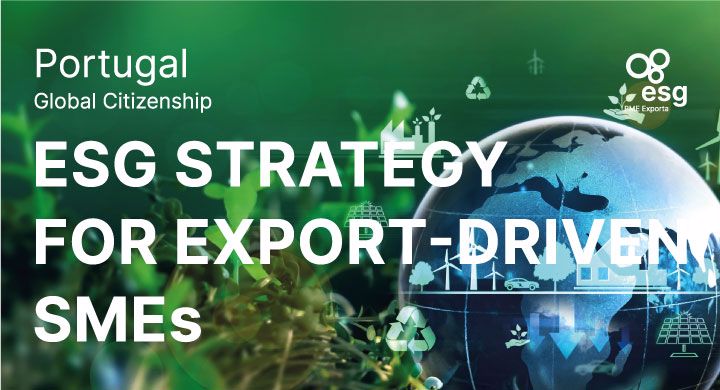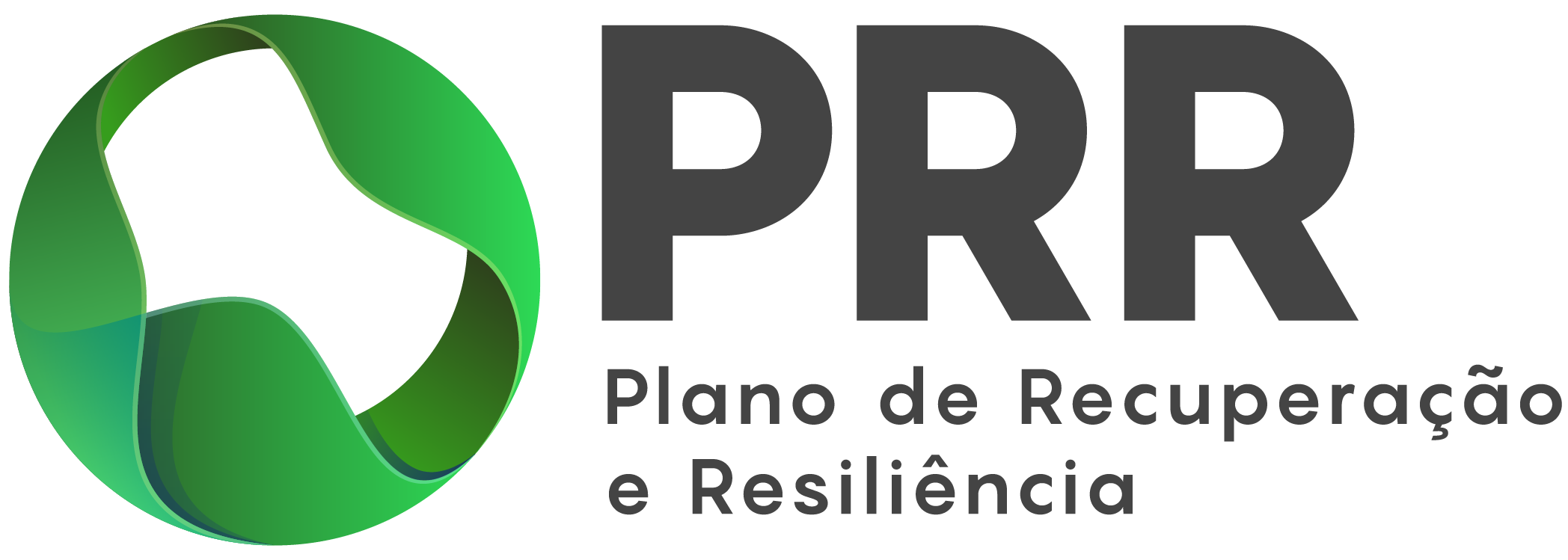Raising awareness and supporting SME Exporters in adopting environmental, social and governance (ESG) practices is the motto and objective of the International Conference that will take place on 25 September at the Fundação Calouste Gulbenkian in Lisbon. Organized by AICEP - Portuguese Trade & Investment Agency in an initiative of the Secretary of State for Internationalisation, the Conference aims to promote a strategy for adapting exporting SMEs to the changes resulting from the transposition of the Corporate Sustainability Reporting Directive (CSRD) approved by the European Commission in December 2022, and a set of new standards and rules on corporate sustainability reporting, which will be announced in 2024.
A broad panel of national and international speakers will address topics such as the general ESG framework and recent developments in Europe and worldwide in terms of the implications it will bring to companies, the positive correlation with their good global performance, the obligation in law and also in access to financing to comply with ESG metrics and, finally, the tools already available to advise companies in the process of transitioning to business models that include policies oriented towards environmental and social impact.
The ESG strategy takes place within the framework of the Sustainable Finance Disclosure Regulation (SFDR) and the Corporate Sustainability Due Diligence (CSDD), and the Corporate Sustainability Reporting Directive (CSRD) of the European Union, whose implementation timeline starts in January 2024 for the financial sector and large companies. For listed SMEs, reporting will be done from 2027 onwards based on 2026 information (SMEs in the value chain of large companies should also prepare from 2026).
This is the first of a set of initiatives that AICEP, in collaboration and partnership with other entities, business associations and chambers of commerce, will develop to empower exporting SMEs in the transition to a new reality within the framework of European policy for economic growth in line with the climate and environmental objectives of the European Green Deal.
The new rules involve companies adopting environmental measures, such as climate change mitigation and adaptation, as well as the environment in general, e.g., biodiversity preservation, pollution prevention and circular economy. On the other hand, social measures can refer to issues of equality, inclusion, labour relations, work-life balance, investing in people and their skills and communities, and human rights issues. Regarding business conduct, good governance of public and private institutions - including management structures, employee relations and executive remuneration - is critical to ensuring transparency and the inclusion of social and environmental considerations in decision-making.
Under the CSRD, from 2024, all large companies in the European Union will have to disclose data on the impact of their activities on people and the planet and the sustainability risks to which they are exposed. The implementation of this Directive will be phased in and should be adopted by listed SMEs in 2026, with practical effects in 2027.
In recent years, the growth of the investment market aligned with the integration of environmental sustainability, social responsibility and good governance practices has grown by 33 percent, and the trend is likely to continue to increase with the new European Directives and the reinforcement of compliance with the United Nations 2030 Agenda.
The obligation to demonstrate alignment with ESG requirements is already a reality in several countries, and in Portugal, adopting these criteria will be a condition for access to the international market and global value chains. Progressively, this orientation will imply a new approach to the management of companies, being an opportunity for them to become more resilient (by identifying risks and strategies to mitigate them), more competitive and, at the same time, more impactful and responsible while creating value, not only for their shareholders but also for their employees and suppliers, for the community, for the territory and the environment.
A broad panel of national and international speakers will address topics such as the general ESG framework and recent developments in Europe and worldwide in terms of the implications it will bring to companies, the positive correlation with their good global performance, the obligation in law and also in access to financing to comply with ESG metrics and, finally, the tools already available to advise companies in the process of transitioning to business models that include policies oriented towards environmental and social impact.
The ESG strategy takes place within the framework of the Sustainable Finance Disclosure Regulation (SFDR) and the Corporate Sustainability Due Diligence (CSDD), and the Corporate Sustainability Reporting Directive (CSRD) of the European Union, whose implementation timeline starts in January 2024 for the financial sector and large companies. For listed SMEs, reporting will be done from 2027 onwards based on 2026 information (SMEs in the value chain of large companies should also prepare from 2026).
This is the first of a set of initiatives that AICEP, in collaboration and partnership with other entities, business associations and chambers of commerce, will develop to empower exporting SMEs in the transition to a new reality within the framework of European policy for economic growth in line with the climate and environmental objectives of the European Green Deal.
The new rules involve companies adopting environmental measures, such as climate change mitigation and adaptation, as well as the environment in general, e.g., biodiversity preservation, pollution prevention and circular economy. On the other hand, social measures can refer to issues of equality, inclusion, labour relations, work-life balance, investing in people and their skills and communities, and human rights issues. Regarding business conduct, good governance of public and private institutions - including management structures, employee relations and executive remuneration - is critical to ensuring transparency and the inclusion of social and environmental considerations in decision-making.
Under the CSRD, from 2024, all large companies in the European Union will have to disclose data on the impact of their activities on people and the planet and the sustainability risks to which they are exposed. The implementation of this Directive will be phased in and should be adopted by listed SMEs in 2026, with practical effects in 2027.
In recent years, the growth of the investment market aligned with the integration of environmental sustainability, social responsibility and good governance practices has grown by 33 percent, and the trend is likely to continue to increase with the new European Directives and the reinforcement of compliance with the United Nations 2030 Agenda.
The obligation to demonstrate alignment with ESG requirements is already a reality in several countries, and in Portugal, adopting these criteria will be a condition for access to the international market and global value chains. Progressively, this orientation will imply a new approach to the management of companies, being an opportunity for them to become more resilient (by identifying risks and strategies to mitigate them), more competitive and, at the same time, more impactful and responsible while creating value, not only for their shareholders but also for their employees and suppliers, for the community, for the territory and the environment.
Live streaming:
YOUTUBE
Morning session
Afternoon session
Linkedin




